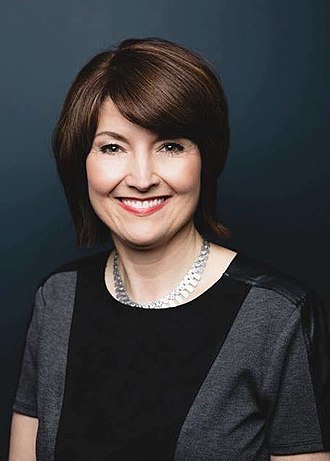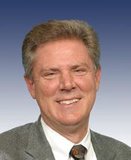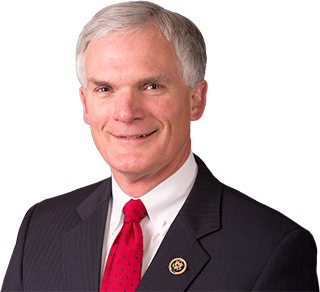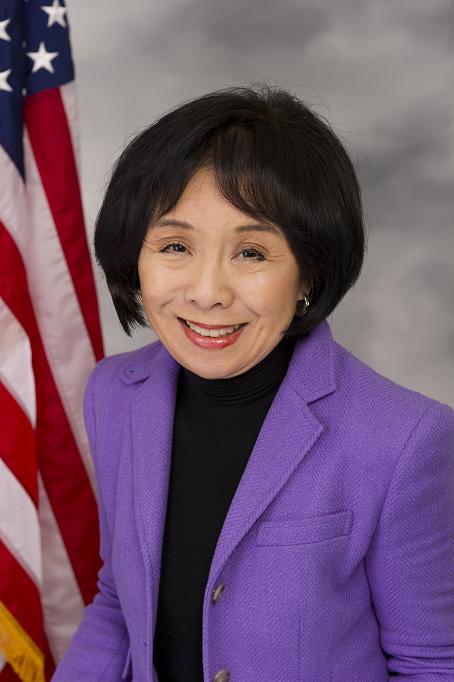Meet Your House Communications Subcommittee
Tuesday, February 14, 2023
Digital Beat
Meet Your House Communications Subcommittee

The House Communications and Technology Subcommittee in the 118th Congress has new leadership and members. Below we offer a brief look at the broadband priorities for this key panel.
The subcommittee has jurisdiction over “electronic communications, both interstate and foreign, including voice, video, audio and data, whether transmitted by wire or wirelessly, and whether transmitted by telecommunications, commercial or private mobile service, broadcast, cable, satellite, microwave, or other modes; technology generally; emergency and public safety communications; cybersecurity, privacy, and data security; the Federal Communications Commission (FCC), and the National Telecommunications and Information Administration (NTIA)."

Although a good deal of work is done at the subcommittee level, legislation must be approved by the full Commerce Committee which is led by Rep. Cathy McMorris Rodgers (R-WA-5) and Rep. Frank Pallone (D-NJ-6), the chair and ranking member respectively. Rep. McMorris Rodgers has served on the Commerce Committee since 2010 and has been part of House Republican Leadership for 10 years as Vice Chair and Chair of the House Republican Conference. She believes broadband is "basic infrastructure in today’s 21st Century economy." Her main focus has been on collecting accurate data about the areas that have access and where we need to improve. She was a co-sponsor of the Broadband Data Improvement Act of 2019. In 2021, then-Chairman Pallone championed the Leading Infrastructure For Tomorrow’s America Act, or LIFT America Act. LIFT proposed nearly $100 billion to ensure broadband networks reached everyone in the U.S. and people had the skills and means to adopt the technology.
"I will be working on making sure that we have that broadband access," said Chairman Latta. "Making sure that we have the spectrum availability that we have to have to make sure that we can get 5G across this country."

Rep. Bob Latta (R-OH-5) chairs the subcommittee. He has been in Congress since 2007 and has had 28 bills and provisions signed into law during his congressional tenure. Rep. Latta co-founded the bipartisan Rural Broadband Caucus and the Wi-Fi Caucus. He co-sponsored the Broadband Deployment Accuracy and Technological Availability Act which requires the biannual collection, verification, and dissemination of granular data relating to the availability and quality of service with respect to terrestrial fixed, fixed wireless, satellite, and mobile broadband internet access service. The legislation led to the Federal Communications Commission's new National Broadband Map, unveiled in November 2022. In addition to working to improve broadband mapping, Rep. Latta has also worked to ensure internet connectivity is more reliable, efficient, and safe from outside threats. He introduced the Spectrum Innovation Act, passed by the House in 2022. The bill would have 1) extended the FCC's spectrum auction authority and 2) established the Public Safety and Secure Networks Fund with a portion of spectrum auction proceeds for reimbursing telecommunications providers for replacing equipment that poses risks to national security and safety. FCC spectrum authority is set to expire in March 2023 so the Spectrum Innovation Act may be reconsidered soon.
Rep. Buddy Carter (R-GA-1) will serve as the subcommittee's vice chair. “I’m thrilled to work alongside Communications & Technology Subcommittee Chair Bob Latta as his Vice Chair for the 118th Congress. From improving rural broadband and communications systems to fighting political censorship online and combatting China’s cyber-warfare, this subcommittee will fight for consumers to have dependable and safe access to technology,” said Rep. Carter. This month, Rep. Carter co-sponsored the Broadband Grant Tax Treatment Act, a bipartisan, bicameral bill that would amend the Internal Revenue Code to ensure that funding for broadband deployment from the Infrastructure Investment and Jobs Act and the American Rescue Plan Act will not be considered taxable income. Grants awarded for the purposes of broadband deployment are currently factored into a company’s income and are subject to taxation.
In 2021, Rep. Gus Bilirakis (R-FL-12) introduced the Coastal Broadband Deployment Act, legislation that would exclude certain communications facility deployment or modification projects from environmental and historic preservation review requirements if it is to be done entirely within a floodplain (the lowland and relatively flat areas adjoining inland and coastal waters). Rep. Bilirakis coauthored the Data Mapping to Save Moms' Lives Act, signed into law by President Joe Biden in December 2022. It requires the FCC—in consultation with the Centers for Disease Control and Prevention—to incorporate publicly available data on maternal mortality and severe maternal morbidity for at least one year postpartum into its Mapping Broadband Health in America platform.
Bridging the digital divide is a top priority for Rep. Tim Walberg (R-MI-5). In the early days of the 118th Congress, Rep. Walberg introduced the Telehealth Benefit Expansion for Workers Act, bipartisan legislation which would expand access to telehealth services by classifying these services as an excepted benefit for employer-sponsored health coverage. "The pandemic revealed how telehealth is a critical tool to ensure that Americans can receive timely, quality, and affordable care from their own home," said Rep. Walberg. "Expanding telehealth services will help ensure that Americans have improved access to health care, especially in underserved areas."
Rep. Neal Dunn (R-FL-2) is new to the subcommittee. "I’m grateful for this incredible opportunity to serve on one of the oldest committees in Congress," said Rep. Dunn. "And I look forward to using this platform to improve the quality of life for my constituents." He noted that his Florida panhandle district is keen on expanding rural broadband infrastructure to help with the rise in remote work and telehealth.
In 2021, Rep. John Curtis (R-UT-3)—a former mayor of Provo, Utah—introduced the Federal Broadband Deployment in Unserved Areas Act, a bill that would require the FCC to share broadband availability data with the federal agencies responsible for overseeing public land, including National Forest Service land. "I frequently hear from constituents about how much of a barrier the federal government is to rural communities gaining internet access," said Rep. Curtis. "The legislation I have introduced helps providers gain access to the resources they need to deploy broadband more efficiently across rural Utah by promoting information sharing between federal agencies. I look forward to working with my colleagues to pass this sensible, fiscally responsible bill into law." Rep. Curtis is an avowed opponent of government-owned broadband networks.
Last month, Rep. John Joyce (R-PA-13) called on the NTIA to extend the period for submitting a challenge to the National Broadband Map. “The challenge period is a time for my constituents to determine whether the mapping data provided by the FCC is accurate. Sadly, a shortened challenge period has made it impossible for my constituents to provide accurate and relevant input to yield the best possible maps,” Rep. Joyce said. “That is why I’m asking for an extension to the challenge period in order to give Americans the chance to fully look at this map and provide accurate data on the needs of their communities.”
Rep. Randy Weber (R-TX-14) was first elected to Congress in 2012 and this is his first term on the House Commerce Committee. Previously, he ran a heating and air conditioning company. "Ensuring our rural communities in Jefferson County have reliable, high-speed internet is critical," he said last year. Rep. Weber opposed the Infrastructure Investment and Jobs Act.
Rep. Rick Allen (R-GA-12) is also new to the Commerce Committee. "I am thrilled to begin serving on the House Energy and Commerce Committee," he said. "I look forward to working with my fellow members to continue fighting for policies to unleash American energy, reduce health care costs, and bring high-speed internet to rural America." In January, Rep. Allen joined the entire Georgia Congressional delegation in a letter to the FCC asking for an extension for challenges to the new national broadband map.
Rep. Troy Balderson's (R-OH-12) priorities include improving access to broadband for rural and underserved communities. Rural communities make up a significant portion of his district. "Without reliable connectivity, rural residents face disadvantages that put them behind their urban and suburban counterparts," he said. This is his first Congress in the Commerce Committee.
Since starting in Congress in 2019, Rep. Russ Fulcher (R-ID-1) has "worked intimately on issues relating to rural broadband access, strengthening our domestic supply chains, protecting free speech and data privacy from Big Tech excesses, and critical mineral exploration and development." This month, he introduced the Internet Application Integrity and Disclosure Act (HR 784) which would require operators of internet websites and mobile applications that are partially or wholly owned by the Chinese Communist Party to disclose this information to consumers who use their products. This disclosure is meant to increase transparency and allow Americans to protect their online activities. The bill is a response to growing concerns about the potential security risks posed by websites and mobile applications owned or influenced by the party.
Rep. August Pfluger (R-TX-11) is the first West Texan to serve on the Commerce Committee in nearly half a century and the first Member to represent Midland and Odessa on the committee. He is entering his second term in Congress. In the 117th Congress, he authored 32 bills and cosponsored 249. His focus has been on securing the southern border, reestablishing American energy dominance, ending inflation, stopping illegal voting, gun-ownership rights, and supporting Texan farmers and ranchers. Rep. Pfluger views broadband as a national security issue.
Rep. Diana Harshbarger (R-TN-1) is a member of the House Rural Broadband Caucus because rural Americans in her East Tennessee district lack access to reliable broadband service, telework capabilities, and telehealth services. She sponsored the Broadband for Rural America Act, legislation that would invest significant and strategic resources to upgrade the internet infrastructure in America’s heartland. She is also a proponent of robust funding for the USDA's ReConnect Program and the Rural Access Loan and Loan Guarantee Program.
Rep. Kat Cammack (R-FL-3) starts her second term in Congress and first on the House Commerce Committee. "As the Gator Nation's representative in Congress," she said, "we've worked hard over the last two years to focus on the very important issues addressed by this committee, including increasing access to high-speed, reliable, and affordable internet access; strengthening our grid security; fighting back against the opioid crisis, and holding big tech accountable." In 2021 she introduced the Gigabit Opportunity (GO) Act. The bill would have empowered states to designate low-income areas that lack fixed wireless broadband service at speeds of at least 25/3 Mbps as "Gigabit Opportunity Zones."
Rep. Jay Obernolte (R-CA-23) survived redistricting to win a second term in Congress in 2022. He is new to the Commerce Committee. Relishing the opportunity to shape policy on some of the most important issues facing America, he said, "I believe it is critical that we unleash the power of American energy production to stabilize energy prices for American families, ensure our energy independence from other countries, and capitalize on our best-in-class clean energy technologies. We must also address the major challenges presented by the growth of big tech and social media to ensure that Americans can enjoy digital privacy, freedom of speech, and safety for our children." Rep. Obernolte voted against the Infrastructure Investment and Jobs Act.

"This subcommittee will help determine whether America maintains its technological leadership in the 21st century. From developing the next generation of communications networks to expanding access to affordable broadband, we are uniquely positioned to deliver benefits for all Americans while boosting economic growth."—Rep. Matsui
Rep. Doris Matsui (D-CA-7) is the new Ranking Member of the subcommittee. She has represented the city of Sacramento and its surrounding areas since 2005. Rep. Matsui is a leader on federal technology and internet policy. She is a Co-Chair of the bipartisan Congressional Spectrum Caucus, having authored laws that facilitated spectrum auctions. She continues to focus on promoting the deployment of next-generation wireless technologies, such as 5G. She is also a leading proponent of net neutrality and ensuring access to the free and open internet, previously writing legislation that would prohibit internet fast lanes from harming consumers, small businesses, and innovators. As the co-chair of the bipartisan Congressional High Tech Caucus, she advocates for policies to expand the innovative use of technology across every sector of the economy. She also is an ardent supporter of advancing STEM education, especially for women and girls. Rep. Matsui co-authored the CHIPS Act and Secure and Trusted Communications Networks Act among other laws as well as the proposed Spectrum Innovation Act and Digital Equity Foundation Act.
In 2021, Rep. Yvette Clarke (D-NY-9) introduced the Anti-Digital Redlining Act, a bill that would ensure equitable access to high-quality, affordable broadband coverage in marginalized communities by prohibiting the practice of digital redlining. The language in the proposal is similar to provisions included in the Infrastructure Investment and Jobs Act that mandated the FCC's current proceeding on preventing and eliminating digital discrimination. Rep. Clark has also been vocal about the importance of diversity for executive branch roles in science, technology, and telecommunications, where women and people of color have historically struggled to gain broad representation.
Rep. Marc Veasey (D-TX-33) recently said, "I will continue to protect affordable and accessible health care, fight for our nation’s energy security, protect our grid security, expand access to broadband, and more." He is an original cosponsor of the Accessible, Affordable Internet for All Act, a proposal for comprehensive, universal broadband legislation that ultimately led to the major broadband provisions included in the Infrastructure Investment and Jobs Act. In particular, Rep. Veasey advocated for more funding for the Emergency Broadband Benefit which was transformed into the Affordable Connectivity Program.
Rep. Darren Soto (D-FL-9) championed a new law on blockchain and cryptocurrencies and proposals on the impact of artificial intelligence on the workforce, and digital tokens. Previously, Rep. Soto proposed to establish the Office of Rural Broadband Initiatives within the Department of Agriculture to administer all rural broadband-related grant and loan programs currently administered by the Rural Utilities Service, conduct specified outreach and coordination activities, and conduct and release to the public an inventory of federal and state property on which a broadband facility could be constructed.
Rep. Anna Eshoo (D-CA-16) and Rep. Matsui are longtime leaders and collaborators in the effort to maximize broadband deployment. The lawmakers have worked together on legislation such as the Nationwide Dig Once Act of 2020, which promotes the installation of broadband infrastructure with road construction. In 2022, they again collaborated on a letter to Transportation Secretary Pete Buttigieg, Energy Secretary Jennifer Granholm, and Alan Davidson, Assistant Secretary of Commerce for Communications and Information at the National Telecommunications and Information Administration, urging them to use funding from the Infrastructure Investment and Jobs Act to build out broadband and electric vehicle charging infrastructure simultaneously.
“Internet service has become a necessity, not a luxury,” said Rep. Tony Cárdenas (D-CA-29) in February 2022. "In today’s world, it’s nearly impossible to do anything – work, learn, go to doctors’ appointments, stay in touch with loved ones – unless you have internet at home. That’s why I fought in Congress to make sure every family in the San Fernando Valley can get connected to opportunity online."
Rep. Angie Craig (D-MN-2) has advocated for transparency in internet bills, introducing the Broadband Consumer Transparency Act of 2021 to provide consumers with information on broadband services available in the marketplace. "As we work to ensure that every family in Minnesota has access to affordable, high-speed internet, we also must ensure that consumers have the information necessary to select the best services for their needs," she said. Consumer broadband label provisions were included in the Infrastructure Investment and Jobs Act. Rep. Craig also proposed the Broadband Measuring Availability and Aligning Policies Task Force Act (Broadband MAPS Act) to establish an FCC task force responsible for coordinating and overseeing the creation and maintenance of broadband availability maps. The law was not passed but FCC Chairwoman Jessica Rosenworcel established the Broadband Data Task Force in 2021.
Rep. Lizzie Fletcher (D-TX-7) is a Vice Chair of the Congressional Equality Caucus which works toward the extension of equal rights, the repeal of discriminatory laws, the elimination of hate-motivated violence, and the improved health and well-being for LGBTQI+ individuals. In 2021, Rep. Fletcher introduced the Broadband Incentives for Communities Act, a bill that would have created a grant program at the NTIA to give communities new resources to train and hire employees in their permitting departments, hire additional human resources, and purchase updated technology and equipment that would facilitate the permitting process. The legislation would also require the NTIA to convene stakeholders to discuss and find solutions to the challenges of efficiently deploying broadband in their local communities.
In the 118th Congress, Rep. Debbie Dingell (D-MI-6) is representing Michigan's new 6th Congressional District after having served the 12th district since 2015. "If we’re going to bring our nation’s infrastructure into the 21st century, we need to expand access to affordable, high-speed Internet," said Rep. Dingell at a White House event announcing commitments from 20 internet providers that will lower high-speed internet costs for millions of Americans. "Even before the pandemic, far too many people in Michigan and communities across our country were disconnected and unable to access simple resources the Internet provides. It’s why Democrats and Republicans alike fought so hard to include the Affordable Connectivity Program in the Bipartisan Infrastructure Law, which will help tens of millions of American households reduce their Internet service costs. I’m grateful to President Biden and Vice President Harris for following through on this effort by securing these commitments, and I was honored to join them on this important day."
Rep. Ann Kuster (D-NH-2) is a member of the Rural Broadband Caucus. At a recent subcommittee hearing, she said, "Whether it is a small business connecting with customers online or families receiving critical telehealth from home, access to quality and affordable broadband is crucial for rural communities across our country. COVID-19 accelerated our reliance on the internet to stay connected, and rural states like New Hampshire need confidence that they will have internet access when they need it most. New satellite technology will make that a reality and help provide reliable, affordable, and accessible broadband to even the most remote communities."
Rep. Robin Kelly (D-IL-2) recently introduced legislation to form a National Digital Reserve Corps, a group of civilian individuals with relevant skills and credentials to address digital and cyber needs across the federal government. She said her aim is to "build the cybersecurity infrastructure we need to keep every American safe."
Additional Readining
The Benton Institute for Broadband & Society is a non-profit organization dedicated to ensuring that all people in the U.S. have access to competitive, High-Performance Broadband regardless of where they live or who they are. We believe communication policy - rooted in the values of access, equity, and diversity - has the power to deliver new opportunities and strengthen communities.
© Benton Institute for Broadband & Society 2022. Redistribution of this email publication - both internally and externally - is encouraged if it includes this copyright statement.
For subscribe/unsubscribe info, please email headlinesATbentonDOTorg






